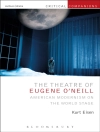This book explores the concept and vocabulary of postdramatic theatre from a pedagogical perspective. It identifies some of the major anxieties and paradoxes generated by teaching postdramatic theatre through practice, with reference to the aesthetic, cultural and institutional pressures that shape teaching practices. It also presents a series of case studies that identify the pedagogical fault lines that expose the power-relations inherent in teaching (with a focus on the higher education sector as opposed to actor training institutions). It uses auto-ethnography, performance analysis and critical theory to assist university teachers involved in directing theatre productions to deepen their understanding of the concept of postdramatic theatre.
विषयसूची
Pedagogy, Politics and the Personal.- 1. John Laws/Sade: Postmodern or Postdramatic?.- 2. From Drama to Theatre to Performance Studies.- 3. Ganesh Versus the Third Reich as Pedagogical Parable.- 4. Attempts On Her Life: A Postdramatic Learning Play?.- 5. Teaching History and (Gender) Politics: The Hamletmachine and The Princess Plays.- 6. Devising Postdramatic Theatre in the Academy.- 7. An Enemy of Postdramatic Theatre? Or What I think about when I think about teaching Postdramatic Theatre.
लेखक के बारे में
Glenn D’Cruz teaches Drama and Cultural Studies at Deakin University, Australia. He is the author of
Sarah Kane’s 4.48 Psychosis and the editor of
Class Act: Melbourne Workers Theatre 1987-2007. He is also the co-editor of
Contemporary Publics: Shifting Boundaries in New Media, Technology and Culture (Palgrave, 2016).












